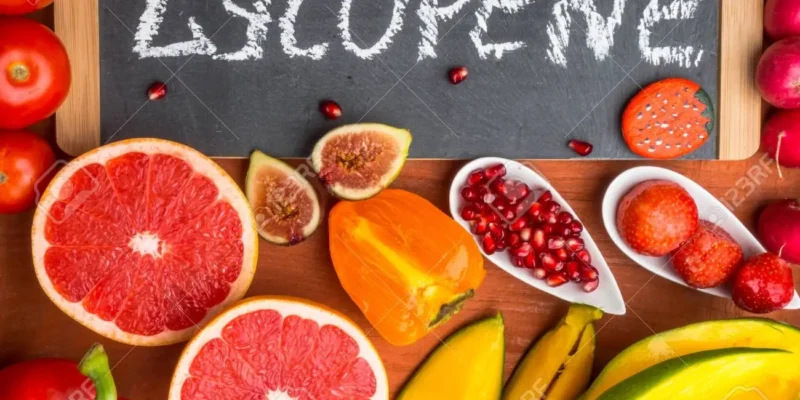
Lycopene-Rich Foods for Natural UV Protection & Skin Health
As the days get longer and the weather gets warmer, many of us are spending more time outdoors, enjoying the sunshine. While getting some sunlight is important for our overall health and wellbeing, too much exposure to the sun’s UV rays can be harmful, leading to sunburns, premature ageing, and even skin cancer.
Fortunately, there are ways to protect ourselves from UV radiation naturally, and one of them is by eating lycopene-rich foods. Lycopene is a powerful antioxidant that is found in red and pink fruits and vegetables, such as tomatoes, watermelon, papaya, and grapefruit. Here’s how lycopene can help protect your skin from the harmful effects of UV radiation:
- Lycopene helps neutralise free radicals
UV radiation from the sun can produce harmful molecules called free radicals, which can damage cells and lead to premature ageing and skin cancer. However, antioxidants like lycopene can help neutralise free radicals, preventing them from causing damage. This means that by eating lycopene-rich foods, you can help protect your skin from the inside out.
- Lycopene can help reduce inflammation
UV radiation can also trigger inflammation in the skin, which can cause redness, swelling, and pain. However, research has shown that lycopene can help reduce inflammation in the body, including in the skin. By eating lycopene-rich foods, you may be able to reduce your risk of sunburn and other UV-related skin damage.
- Lycopene may help improve skin texture and appearance
In addition to protecting your skin from UV damage, lycopene may also have benefits for skin health and appearance. Some studies have suggested that lycopene can help improve skin texture, reduce the appearance of fine lines and wrinkles, and even boost collagen production. This means that by eating lycopene-rich foods, you may be able to enjoy healthier, more youthful-looking skin.
On the benefits of lycopene for skin health
Lycopene is a powerful antioxidant that has been shown to have numerous benefits for skin health. Here are some of the ways that lycopene can help keep your skin looking and feeling its best:
- Lycopene may help reduce the appearance of fine lines and wrinkles
As we age, our skin naturally loses elasticity, which can lead to the formation of fine lines and wrinkles. However, research has suggested that lycopene can help improve skin texture and reduce the appearance of wrinkles. This is because lycopene helps protect against free radical damage, which can contribute to the breakdown of collagen and elastin in the skin. By preserving these key proteins, lycopene can help keep your skin looking smoother and more youthful.
- Lycopene can help protect against UV damage
Exposure to UV radiation from the sun can cause a range of negative effects on the skin, including sunburn, premature aging, and an increased risk of skin cancer. However, research has shown that lycopene can help protect against the damaging effects of UV radiation. By neutralizing free radicals and reducing inflammation, lycopene can help prevent UV-related damage to the skin.
- Lycopene may help improve skin hydration
Healthy skin relies on good hydration to maintain its elasticity and suppleness. Fortunately, lycopene may help improve skin hydration levels by helping to strengthen the skin’s natural barrier function. By preventing moisture loss, lycopene can help keep your skin looking and feeling soft and smooth.
- Lycopene can help reduce inflammation
Inflammation is a natural response to injury or irritation, but chronic inflammation can contribute to a range of skin problems, including acne, eczema, and psoriasis. Fortunately, lycopene has been shown to have anti-inflammatory properties that can help reduce inflammation in the skin. By reducing redness, swelling, and discomfort, lycopene can help soothe irritated or inflamed skin.
In conclusion, incorporating more lycopene-rich foods into your diet can have a range of benefits for your skin health. Whether you’re looking to reduce the appearance of fine lines and wrinkles, protect against UV damage, or improve your skin’s hydration levels, lycopene is a natural and effective ingredient that can help keep your skin looking and feeling its best.
So, which foods are the best sources of lycopene? Here are some of the top options:
- Tomatoes: Tomatoes are perhaps the most well-known source of lycopene, and for good reason. One cup of tomato juice contains around 22 mg of lycopene, while one medium-sized tomato contains about 3 mg.
- Watermelon: Watermelon is another delicious source of lycopene. One cup of diced watermelon contains around 6 mg of lycopene.
- Papaya: Papaya is a tropical fruit that is rich in lycopene, as well as other beneficial nutrients like vitamin C and fibre. One medium-sized papaya contains about 3 mg of lycopene.
- Grapefruit: Grapefruit is a tangy and refreshing fruit that is high in lycopene. Half a grapefruit contains around 2 mg of lycopene.
In conclusion, eating lycopene-rich foods is a natural and tasty way to protect your skin from the harmful effects of UV radiation. By incorporating more tomatoes, watermelon, papaya, and grapefruit into your diet, you can help keep your skin looking and feeling healthy and beautiful, all summer long.

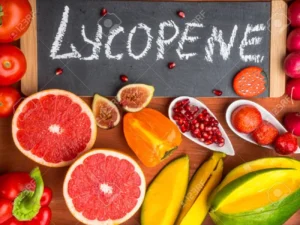
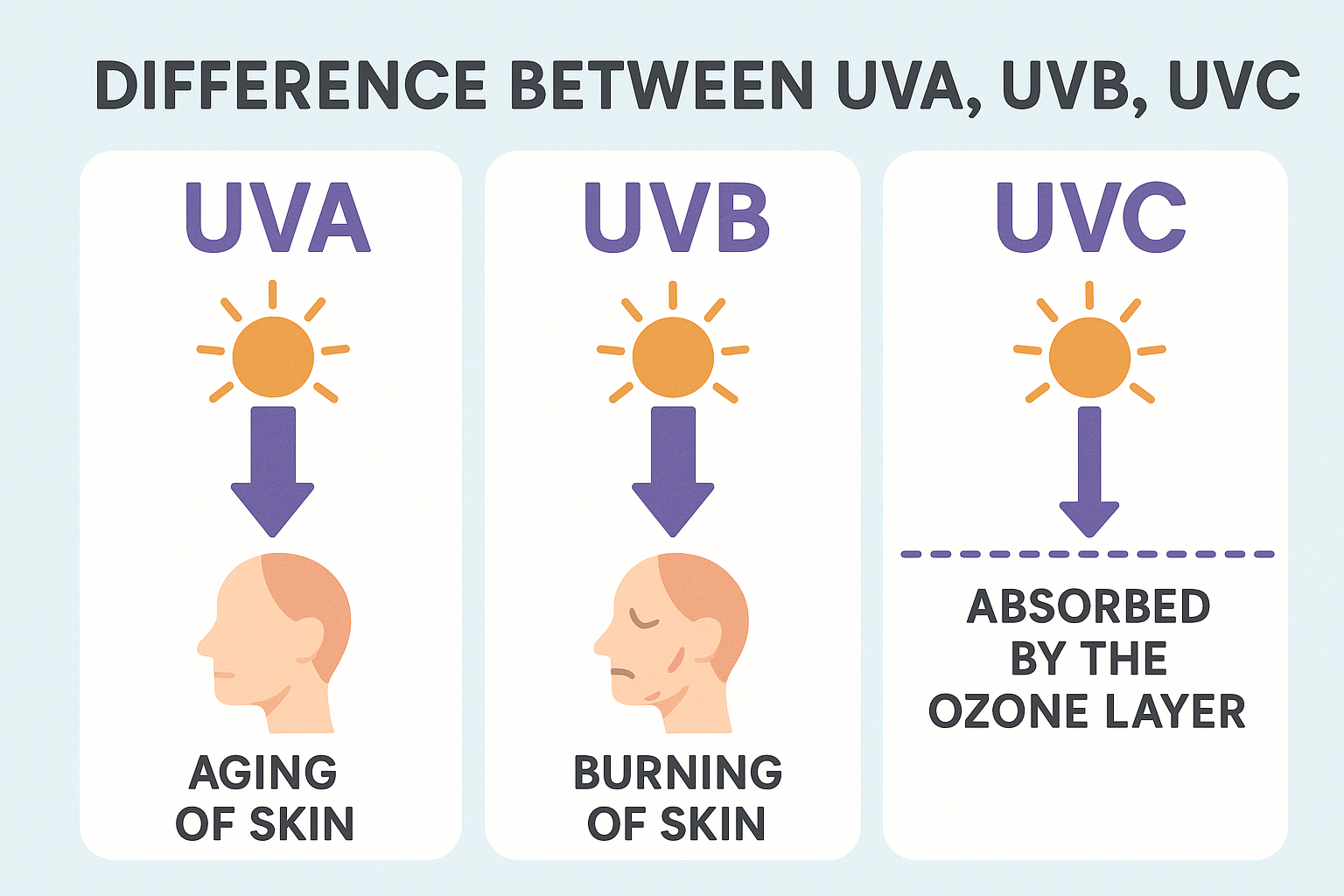
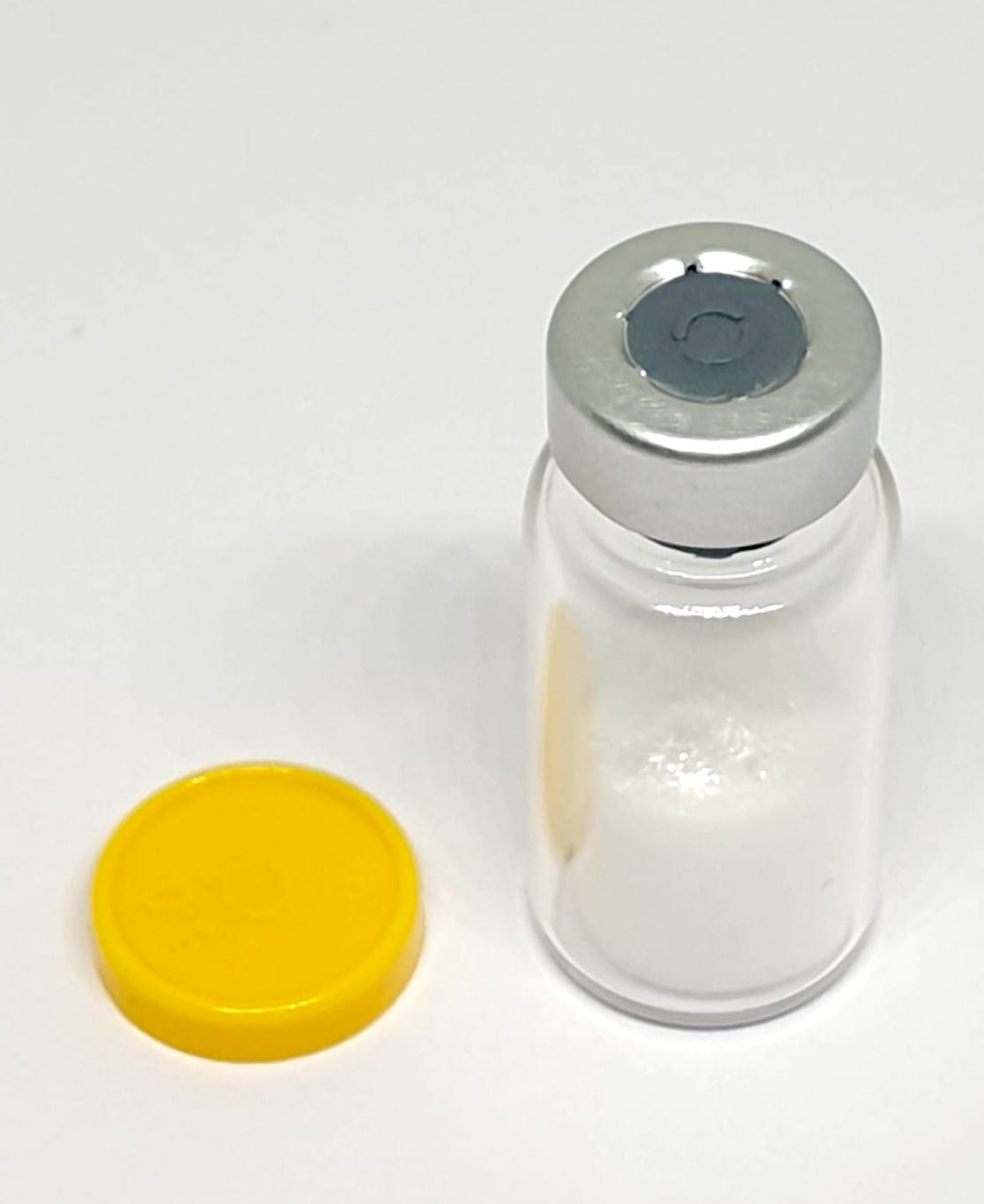



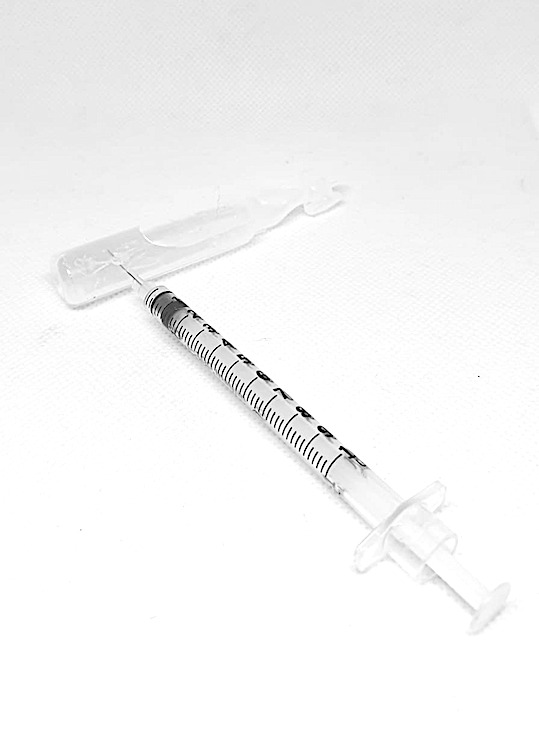
This Post Has 0 Comments